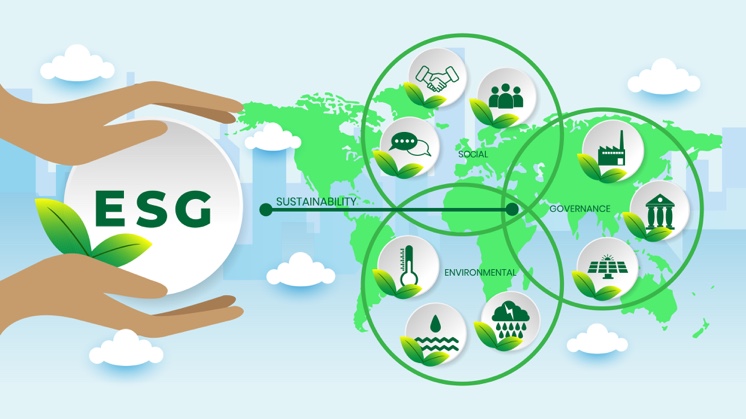“…79% of investment managers believed that ESG factors should be integrated into the investment process.” – Chartered Financial Analyst (CFA) Institute survey, 2021.
In the world of business, it’s easy to get confused by abbreviations, but the acronym ESG is becoming more and more common. There’s hardly a conference where it’s not mentioned, but the definition of it is not always clear. Our colleagues from denxpert have summarised the most important aspects and definitions of ESG that you need to know!
In short, it is a philosophy that could be a critical factor in the way companies operate in the future, a corporate strategy that financial markets closely watch, and a reporting system that will be applied to the allocation of EU funds. So your company’s future success may also depend on it. Indeed, Environmental, Social & Governance (ESG) initiatives have become a strategic imperative for nearly all large organizations over the past years. Increased focus and pressure from investors, regulators, employees and other stakeholders have made ESG a critical topic at board level and essential to cascade throughout organizations operationally.
Before defining ESG, we must understand sustainability, as many business leaders and environmental experts use the terms interchangeably. It makes sense, in a way, as both share the same goal of improving a company’s business practices to boost profits, and win favor from investors, customers, and regulators.
Sustainability is an umbrella term encompassing all company efforts to reduce its impact on its surrounding world. A sustainable business is an organization with a minimal negative impact or potentially a positive effect on the global or local environment, community, society, or economy. For example, sustainability can also mean creating good jobs or promoting gender equality — in addition to protecting the environment.
Environmental, Social, and Corporate Governance (ESG) evaluates a firm’s collective conscience for social and environmental factors. It is typically a score (ESG score) compiled from data collected about the intangible assets of the company. ESG reports are more specific and data-driven. They aim to monitor the non-financial risks and opportunities inherent in companies’ daily operations. In other words, ESG enables investors and other financial market players to evaluate the activities of a company based on non-financial data.

ESG focuses on three dimensions (environmental, social, and governance) rather than just going green or being a responsible steward. It is an integral part of a company’s overall mission and strategy and runs through the veins of the business in all departments. Unlike CSR, ESG is no longer an outlier or siloed department that can fluctuate in relevance – instead, it impacts a considerable number of operational decisions.




